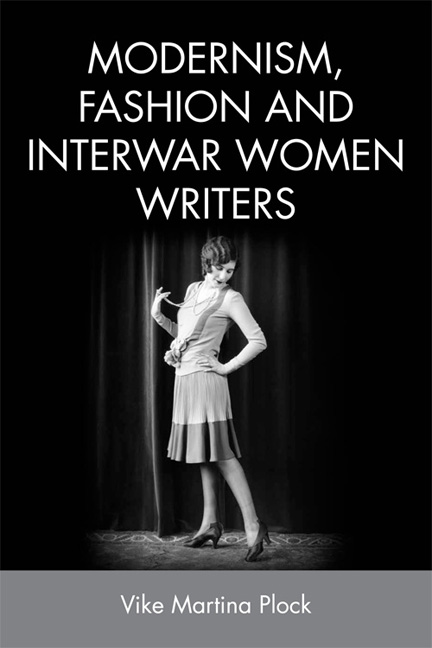4 - Ties: Elizabeth Bowen
Published online by Cambridge University Press: 03 January 2018
Summary
In theory, dress is an art. The architecture of textiles ought to rank only less high than the architecture of stone in so far as textiles are less durable …
(Bowen 1950: 112)This chapter concentrates on Elizabeth Bowen and continues the investigation into the organisation of the interwar literary field by showing how a woman novelist, who assisted in shaping modernism's critical afterlife from the very beginning, coordinated her engagement with the sartorial and the literary fashions of her time. Like Lehmann, it needs to be remembered, Bowen was inspired by modernist writers such as Woolf, who is commonly regarded as her ‘friend, mentor and, in some ways, her model as modern, professional female author’ (Bennett 2009: 29). But Bowen was, unlike Lehmann, also very keen to develop her literary reputation as a serious novelist in response to a market that favoured the mass production of fiction that ‘is written to formula’ and ‘created’, as Bowen explained in 1950 in one of her reflections on contemporary publishing practices, to accommodate ‘the wish of the public to be told, yet once again, what it knows already, or to have the same tune played, with slight variation, on a range of feelings of which it is already aware’ (Bowen 1952b: 152).
Here I suggest that Bowen tried to safeguard her reputation as a highbrow writer precisely at the time when her work was beginning to become ‘a prestige commodity’ on the early 1930s literary marketplace (Glendinning 1978: 98). In doing this, I shall further suggest, she indirectly engaged with two programmatic concerns commonly associated with modernist experimentation. In the first place, she developed epistemological considerations of intersubjectivity and of subject-object relations that challenged modernism's conceptual focus on interiority. For Bowen, I will argue in the following pages, fashion proved to be such a rewarding topic because her critical engagement with its social causalities advanced her thinking about the construction of interpersonal relations in twentieth-century mass market economies. As we shall see, Bowen's writing consistently associates objects such as dresses with the quick pace of modern fashion and its insistence on seasonal renewal. These sartorial items obtain more agency than the characters who wear them.
- Type
- Chapter
- Information
- Modernism, Fashion and Interwar Women Writers , pp. 145 - 180Publisher: Edinburgh University PressPrint publication year: 2017



